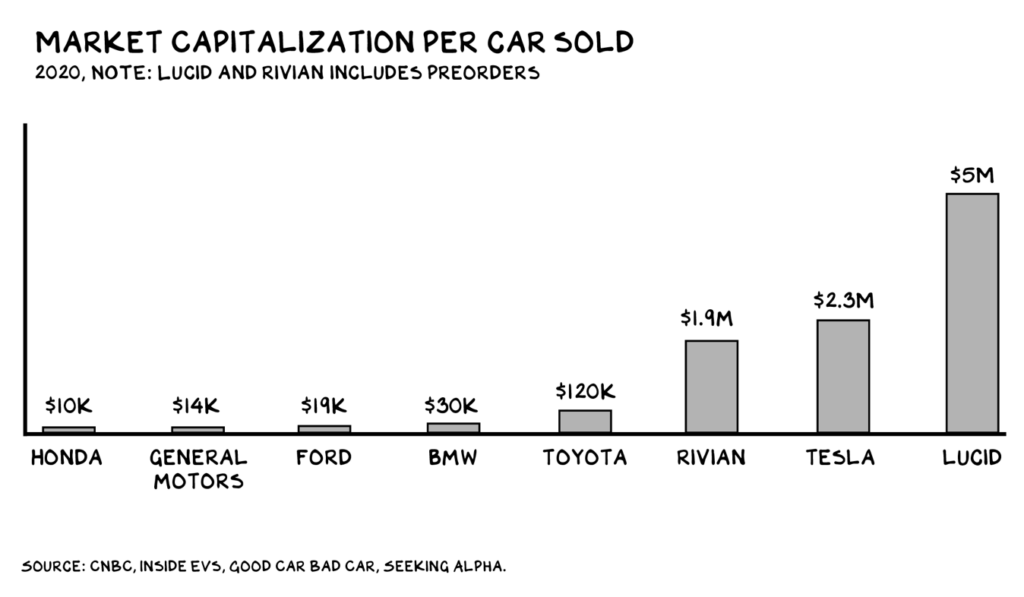Lightness visible

The UK countryside is a bleak place for a photographer at the moment — various shades of brown predominate, and everything is unbelievably muddy. (You should see our boots after a long riverside walk the other day.) Still, sometimes one gets a break, as with this shot taken yesterday morning on a cycle ride.
Quote of the Day
”The Times’s Kat Lay and Henry Zeffman reveal, almost unbelievably, that the sole distributor of tests to pharmacies took delivery of 2.5 million tests before Christmas then shut for four days before they could be distributed.”
- From Politico’s daily newsletter, yesterday
Musical alternative to the morning’s radio news
Chris Rea | Stainsby Girls
Long Read of the Day
The Haunted California Idyll of German Writers in Exile
Alex Ross’s marvellously erudite and perceptive New Yorker essay on ‘Weimar on the Pacific’ and the “excruciating dissonance” that German intellectual and artistic émigrés in L.A. felt between their circumstances and the horrors unfolding in Europe.
It’s particularly good on Thomas Mann, a difficult character whose publisher Alfred Knopf projected as the “Greatest Living Man of Letters” — which enabled Mann to take on a new public role as spokesman for the anti-Nazi cause.
“Because he so manifestly stood above the partisan fray, Mann was able to speak out against Hitler and be perceived as a voice of reason rather than be dismissed as an agitator.”
Essays like “The Coming Victory of Democracy” and “War and Democracy” remain dismayingly relevant in the era of Vladimir Putin, Viktor Orbán, and Donald Trump. In 1938, Mann stated, “Even America feels today that democracy is not an assured possession, that it has enemies, that it is threatened from within and from without, that it has once more become a problem.” At such moments, he said, the division between the political and the nonpolitical disappears. Politics is “no longer a game, played according to certain, generally acknowledged rules. . . . It’s a matter of ultimate values.” Mann also challenged the xenophobia of America’s strict immigration laws: “It is not human, not democratic, and it means to show a moral Achilles’ heel to the fascist enemies of mankind if one clings with bureaucratic coldness to these laws.”
It didn’t last, of course.
Those exiles who remained in America felt mounting insecurity as the Cold War took hold. McCarthyism made no exceptions for leftist writers who had been persecuted by the Nazis. Brecht left in 1947, the day after he appeared before the House Un-American Activities Committee, and later settled in East Germany. Feuchtwanger longed to return to Europe but, having never been granted U.S. citizenship, chose not to risk leaving.
Thomas Mann, who had become an American citizen in 1944, felt the dread of déjà vu. The likes of McCarthy, Hoover, and Nixon had crossed his line of sight before. In 1947, after the blacklisting of the Hollywood Ten, he recorded a broadcast in which he warned of incipient Fascist tendencies: “Spiritual intolerance, political inquisition, and declining legal security, and all this in the name of an alleged ‘state of emergency’: that is how it started in Germany.”
I learned a lot from this piece. Hope you do too.
Crystal Balls
It’s that time when everyone and his dog sets about making predictions for the coming year.
Not this blogger, though. As Scott Galloway says:
Making predictions is a shitty business. The events leading up to the realization of any prediction make it seem less extraordinary. And when you get it wrong, you’re an insufferable numbskull. The value of a prediction is in the act of making it, not the prediction itself. Contemplating what may happen encourages us to take responsibility for decisions we make in the present. Also, revisiting a prediction and asking why it did/didn’t come to fruition provides insight into the machinations of our world and whether we are progressing or regressing.
Politico’s London Playbook (an essential daily newsletter, IMHO) had an interview with Tom Standage, the Deputy Editor of the Economist, in which he said some interesting things. For example:
- His paper was “more worried” about Russian troops building up on the borders of Ukraine than about a Chinese invasion of Taiwan in 2022.
- Taiwan, though, is “the country to watch this year”. At the “sharp end between the two great political groupings,” it is also a place that “matters to business in a way that it never did before,” Standage explains. It has chip supremacy — the Taiwanese chip company TSMC makes the chips that go into the iPhone and that power Google and Tesla’s AI systems.
- Re Taiwan, there will be Chinese saber-rattling, but that won’t translate into military conflict. But if that prediction turns out to be wrong, the implications could be huge. “Fragile” chip factories could very easily be sabotaged. “You could take all of the engineers out that run them in a single airplane,” he says. “If that were to happen, there would be consequences beyond the geopolitical consequences. It would have a big impact on lots and lots of big tech companies,” Standage warns. “That would affect China itself because the tech supply chains are so intertwined,” he says.
- U.S. President Joe Biden is “likely to do very badly” in the U.S., and the prospect of former U.S. President Donald Trump coming back “may take a big step closer.”
- Future of Ireland. Next year will mark the centenary of the foundation of the Irish Free State — it marked the end of the three-year Irish War of Independence. While Standage doubts anything will change next year, the Irish nationalist Sinn Féin party is expected to do well in next year’s Northern Ireland Assembly election. Standage says Irish unification is no longer in the “realms of science fiction,” adding: “I think it was Star Trek that predicted Irish unification in 2024 in one of its episodes in the 1980s. At the time that was so outlandish that it wasn’t shown in Britain. But actually, you know, that timeline is looking more plausible.”
My commonplace booklet

Note: Lucid (of which most people I know have never heard) is a manufacturer of an all-electric, high-performance, very expensive luxury EVs. According to this source it expected to deliver “fewer than 1,000 cars in 2021”. Note the market capitalisation and then check the definition of irrational exuberance.
Errata
Yesterday’s edition was a proof-reader’s nightmare.
- First of all, on January 2, 2022, it wished readers a ‘Happy 2021’.
- Secondly the Long Read (Zadie Smith’s wonderful piece on Joan Didion) repeated one of the excerpts.
- And Duke University’s celebration of Public Domain Day 2022 was re-dated to 2021!
I’ve always admired Sam Johnson’s candid reply to the lady who asked him, indignantly, how he could have mistakenly defined ‘pastern’ as ‘the knee of a horse’ in his great dictionary. “Ignorance, Madam”, he said, “pure ignorance.”
In my case, the corresponding reply to a question about how it was possible to make three such glaring errors in a single edition would be: incompetence, Madam, pure incompetence.
This Blog is also available as a daily email. If you think that might suit you better, why not subscribe? One email a day, Monday through Friday, delivered to your inbox. It’s free, and you can always unsubscribe if you conclude your inbox is full enough already!
